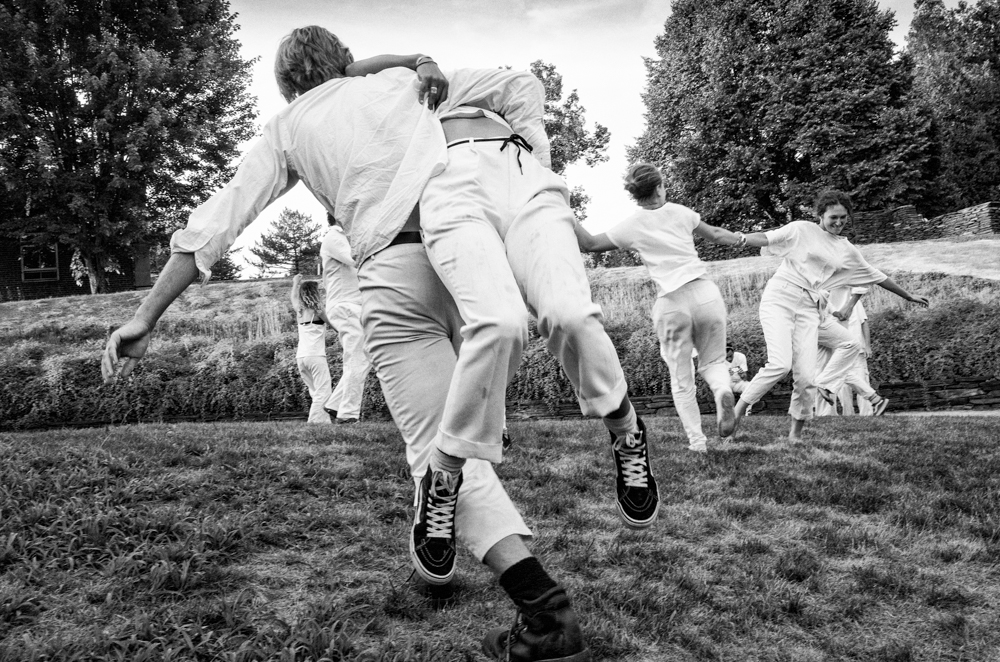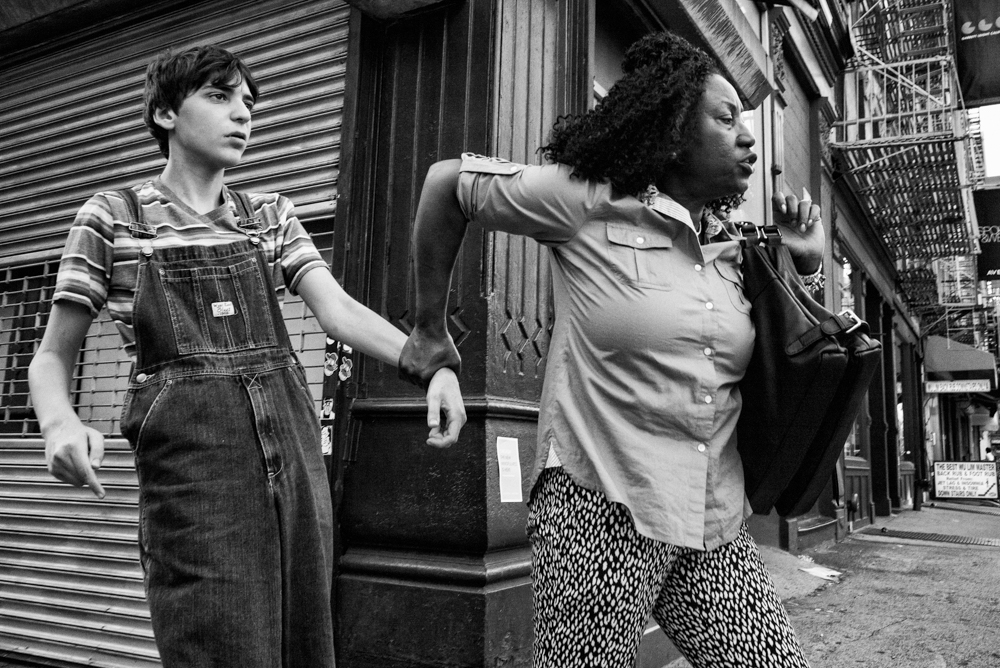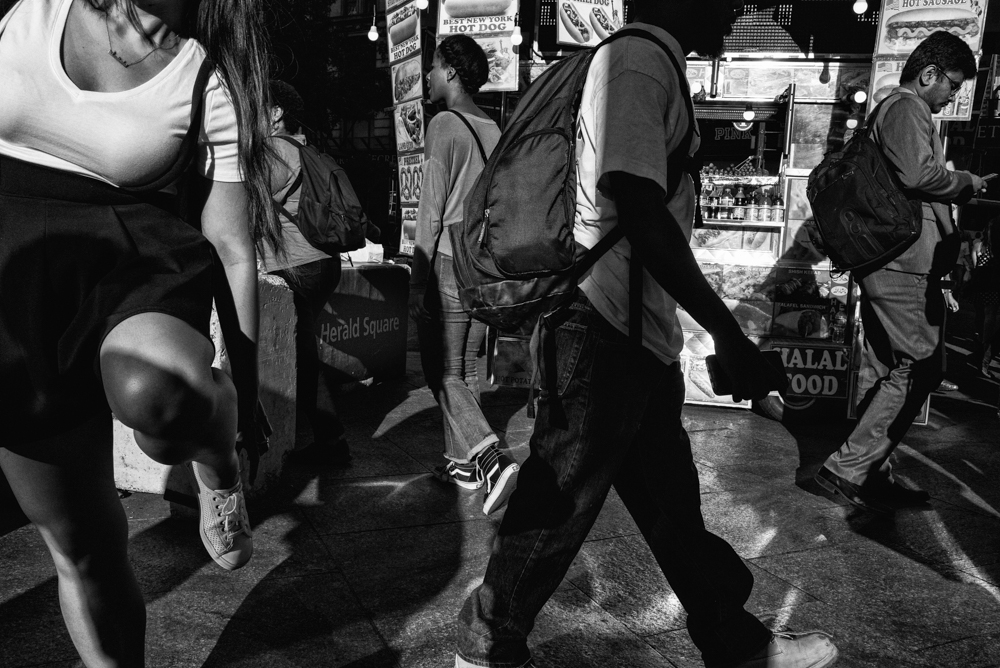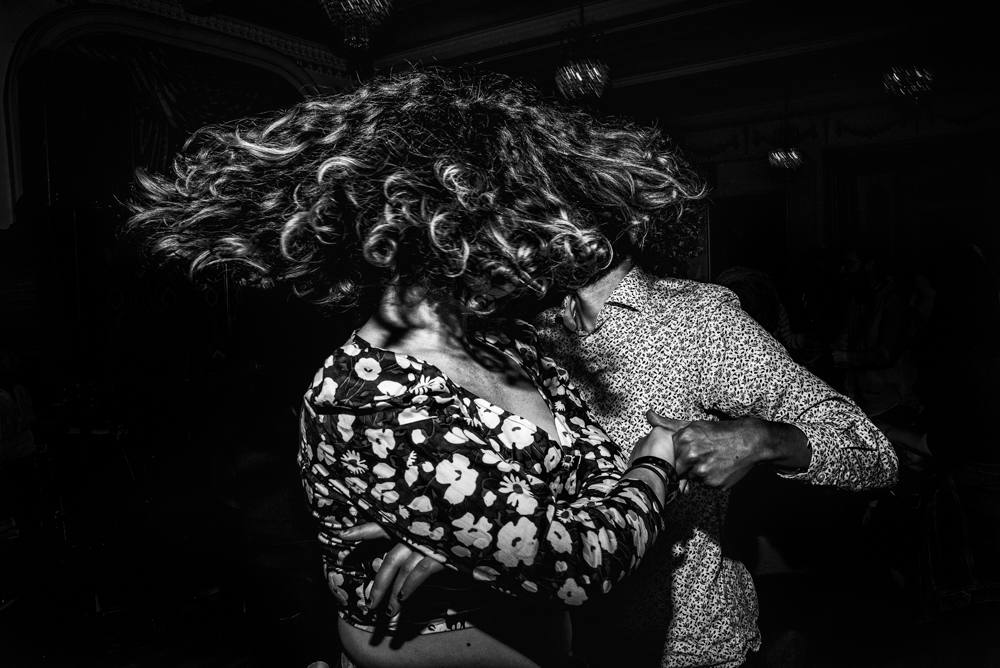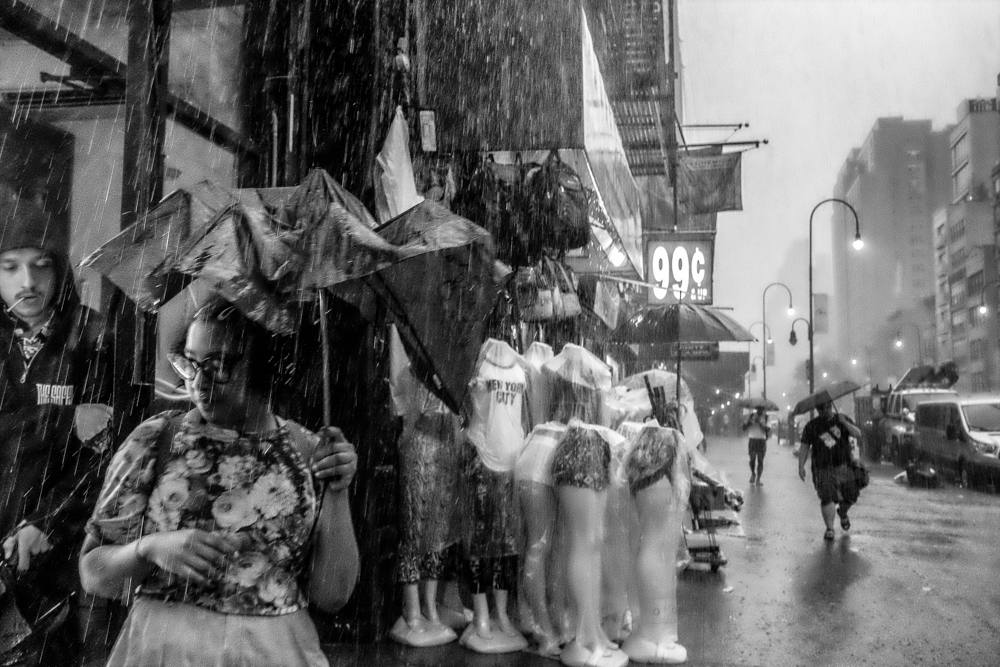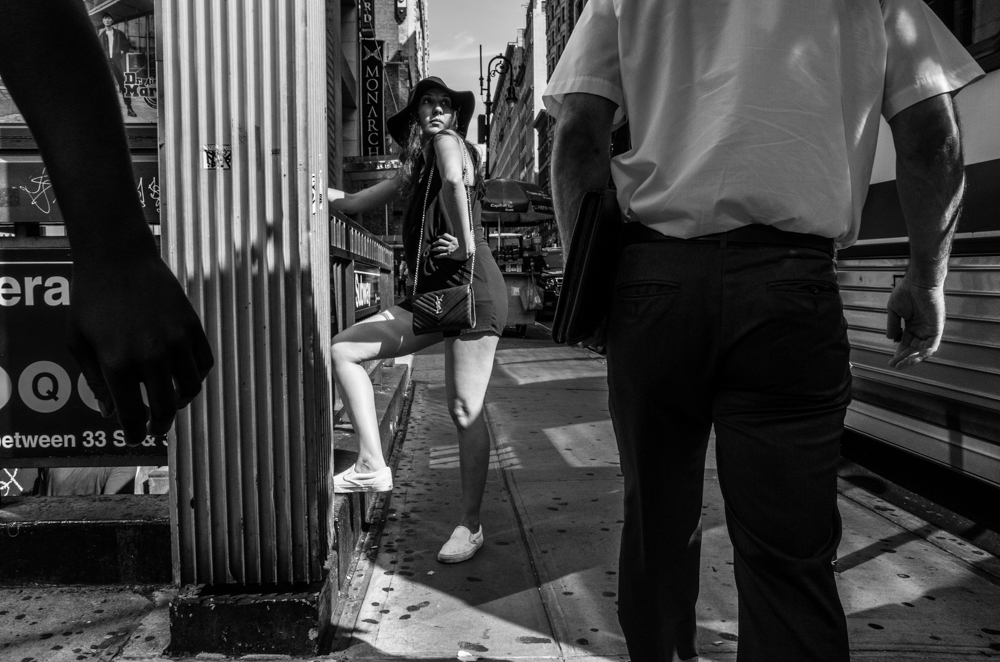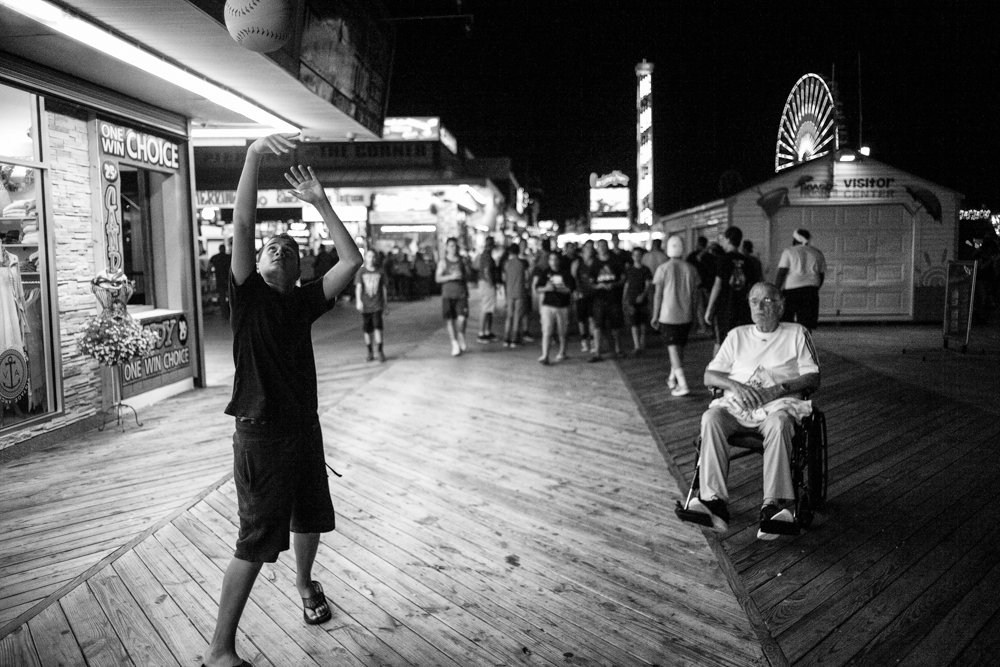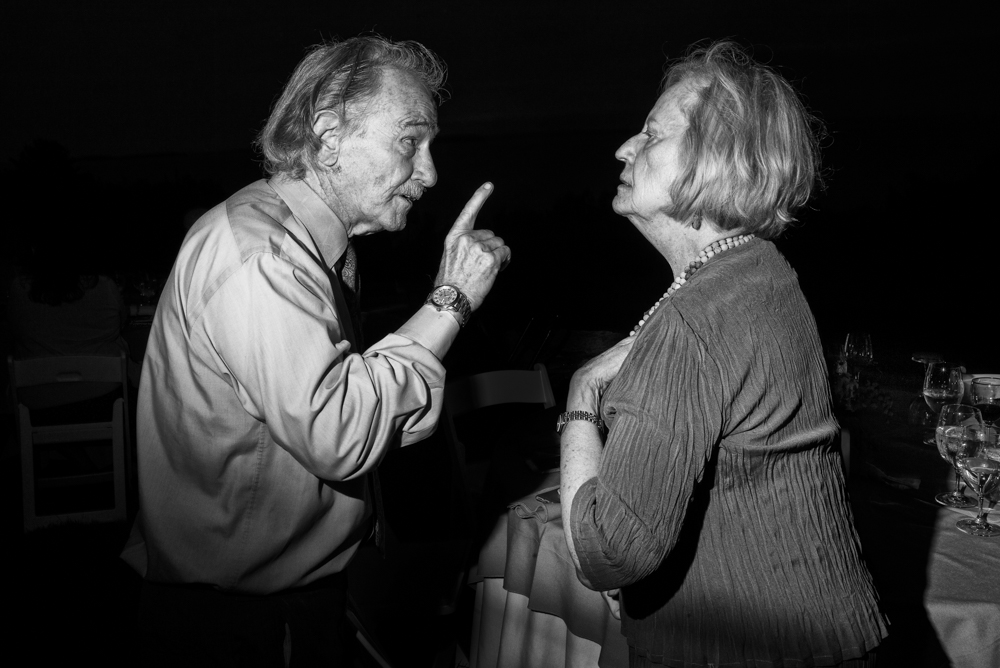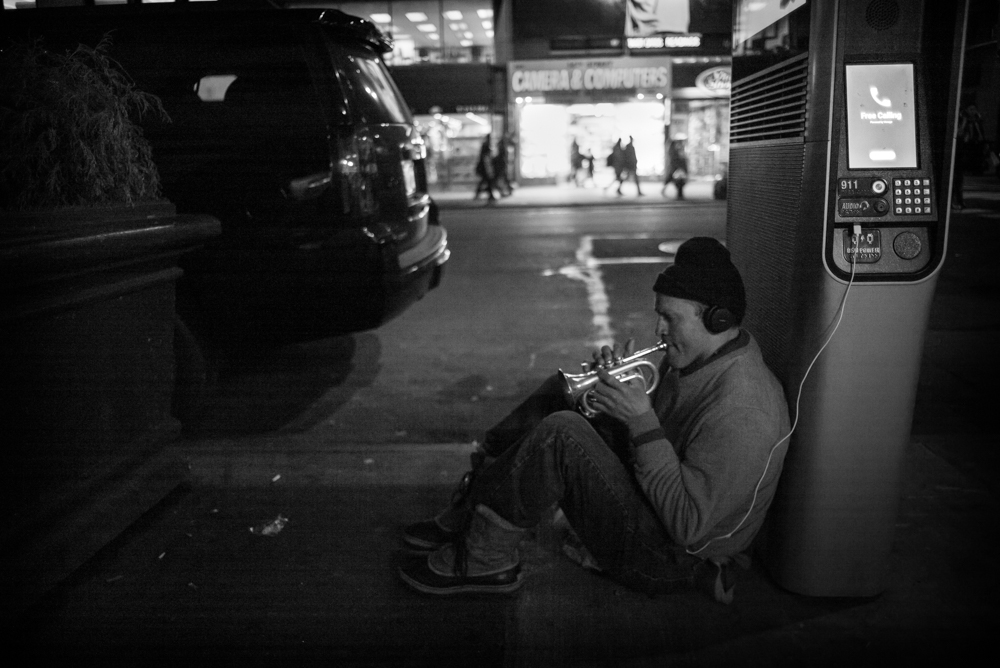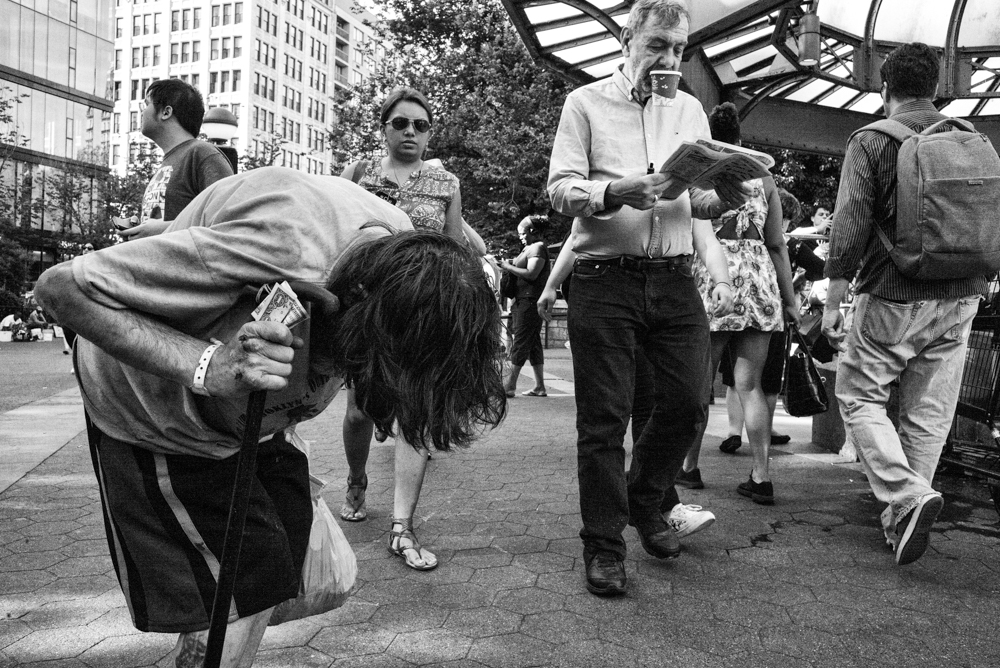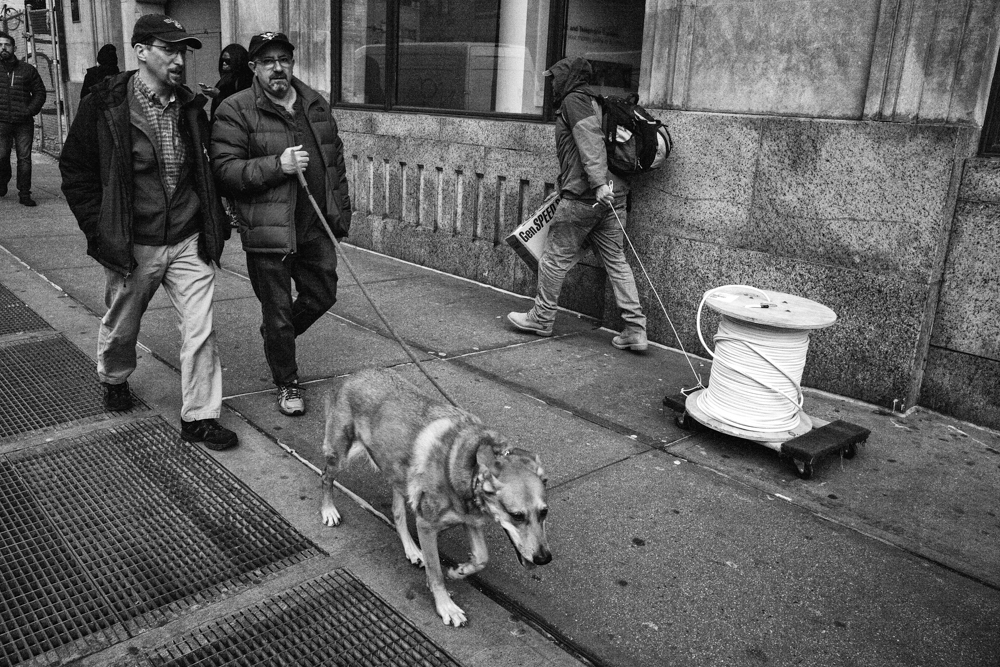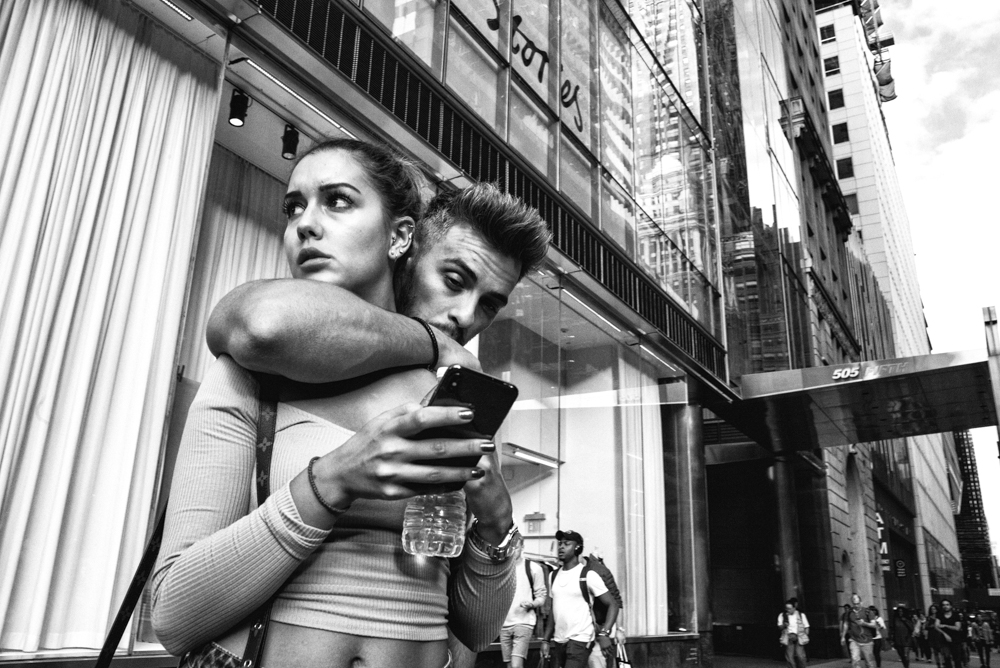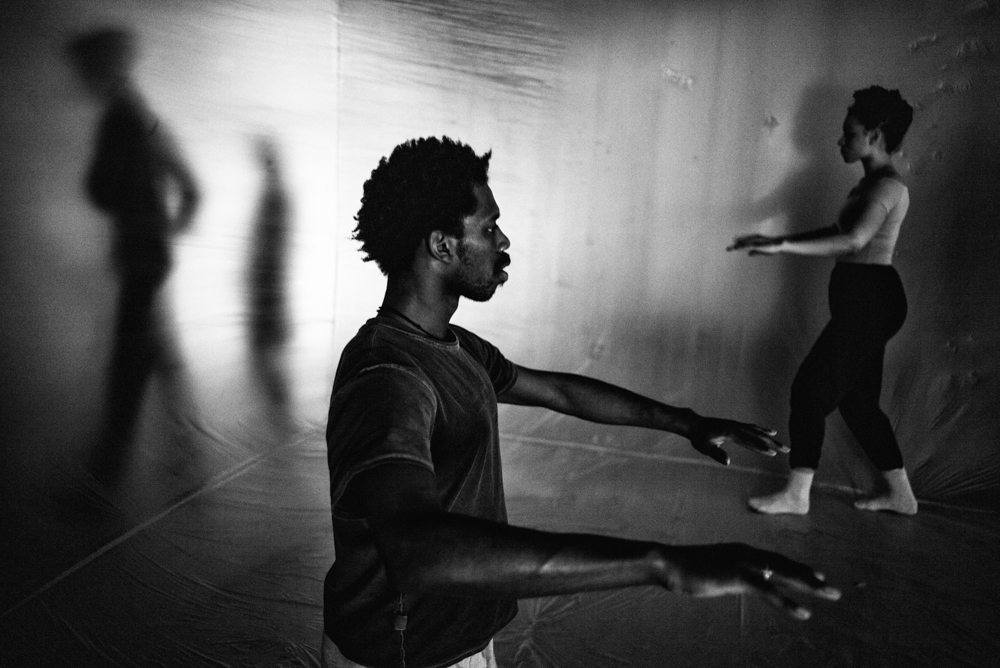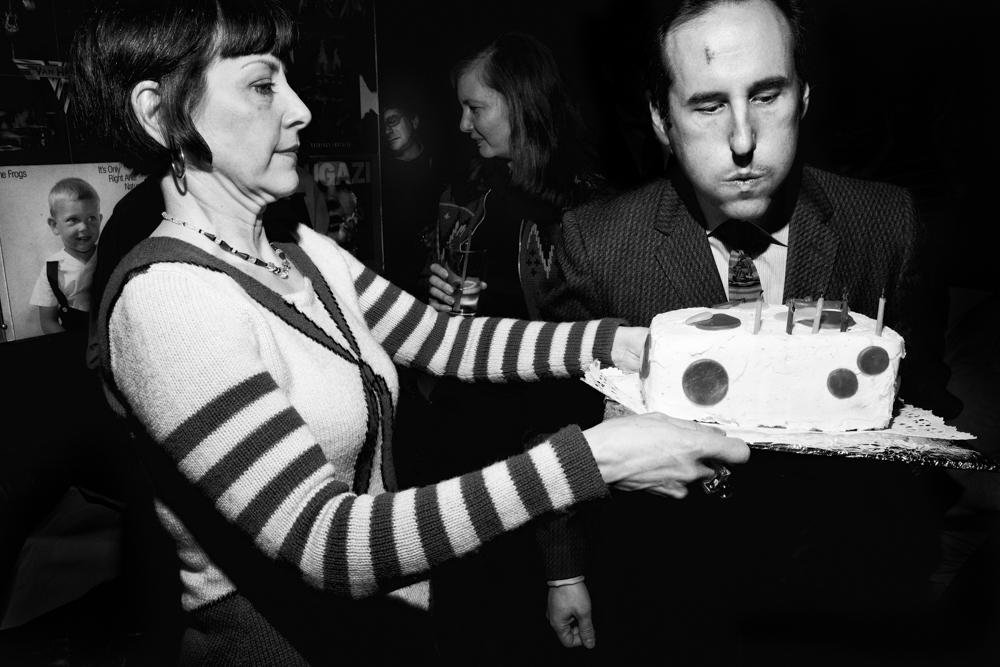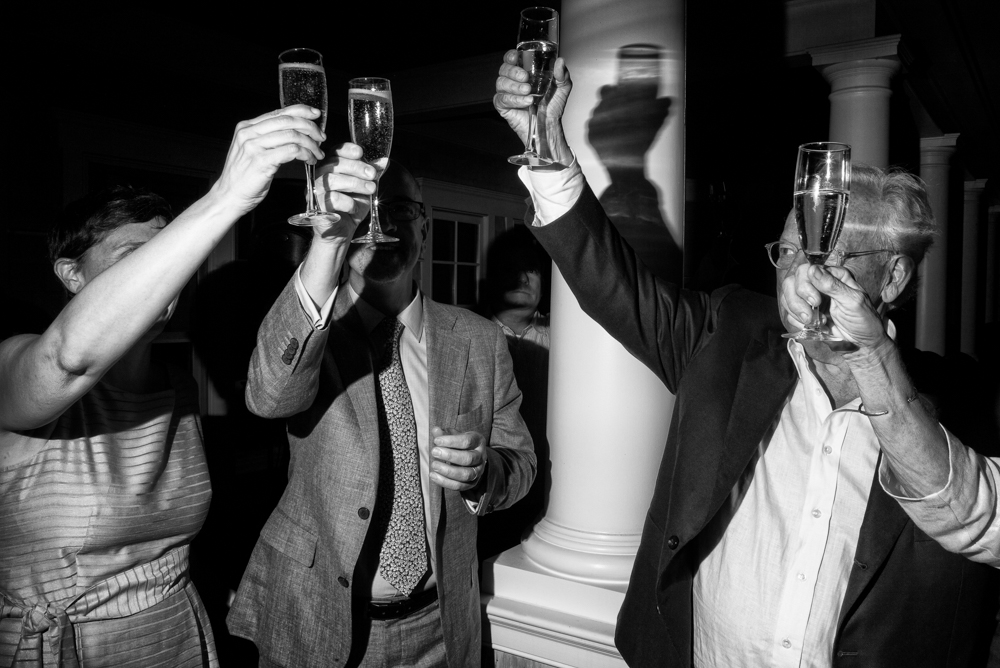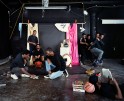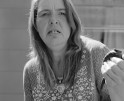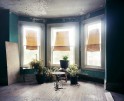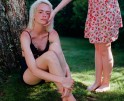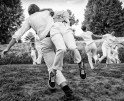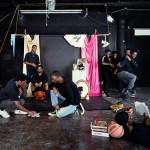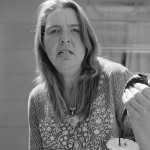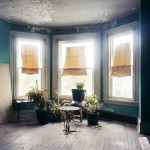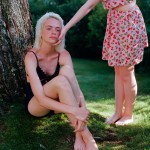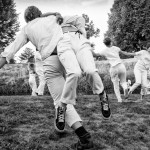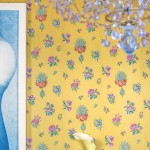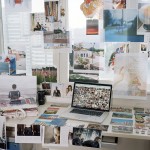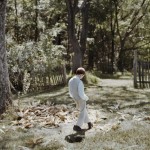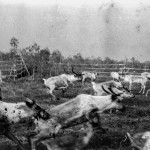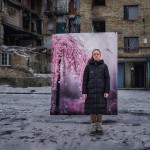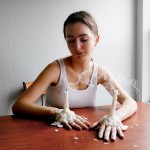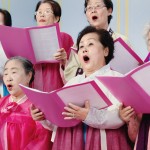2019 Lenscratch Student Prize: Third Place: Reuben Radding
It is with great excitement that we honor Reuben Radding, Goddard College, MFA in Interdisciplinary Arts – 2019, with Third Place in the 2019 Lenscratch Student Awards. As the winner, he will receive a mini exhibition on the Curated Fridge, a Lenscratch T-Shirt and tote, and today’s feature on Lenscratch. Thank you to our sponsors and to our jurors Aline Smithson, Brennan Booker, Daniel George, Julia Bennett, Drew Nikonowicz, Sarah Stankey and Shawn Bush.
Walking on the path that photographers like Bruce Davison, Larry Towell and David Hurn paved, Reuben’s evocative black and white street photographs are reminiscent of masters from the Magnum school of photography. He chooses to show the world as it is, allowing its beauty to encompass the totality of human interaction while carefully navigating the façade of a curated existence that is so embedded in contemporary culture. Rather than heavily critiquing the people and spaces his lens interacts with, Reuben’s work acts a celebration of life and a window into the everyday. Showing the splendor of in-between or uncomfortable moments which are rarely described by the lens but encompass so much of the performance of living. As trends in photography tend to move away from straight iterations, Reuben’s energetic photographs are a fresh breath of air and reminder that photography, in its essence, is a medium that has a unique ability to clearly express and abstract reality simultaneously.
Reuben Radding (1966, Washington, D.C.) is a photographer, writer, and musician based in Brooklyn, New York. His award-winning street, personal, and performance photographs depict elusive or unlikely candid moments in human life, which intentionally provoke unanswerable questions in the viewer’s mind. These open questions are what Radding considers to be his true subject matter. His visual signature is primarily forged from an obsession with musicality, energy, and gesture. Radding’s work has been exhibited in numerous galleries in North America and Europe, and in publications like The New York Times, Rolling Stone, Hamburger Eyes, Time Out, Hyperallergic, Downbeat and others. He will graduate with an MFA in Interdisciplinary Arts from Goddard College in July 2019.
(a)Part
My photography is an improvisation, performed in long hours of wandering the New York City streets on foot, guided by the scent of great human character and fragility, poetic physical gestures of emotion or energy, explosions of life force, momentary chance encounters, and quiet interactions which imply subjective stories when stopped in time. The resulting unparaphrasable black and white pictures intentionally leave unanswered questions in the viewer’s mind, and provide me with a venue for healing my long-felt sense of separation from others, the feeling of being apart, rather than a part. My stream-of-consciousness approach to curating and sequencing the work capitalizes on a sense of mystery forged from a rejection of aboutness, blurring the lines between public and private, fusing street photography with personal documentary, all towards the goal of realizing my lifelong dream of erasing any division between my art-making life and the rest of my life.
Congratulations on your Lenscratch Student Prize! What’s next for you? What are you thinking about and working on?
Thank you! I am extremely fortunate to be graduating this month from an interdisciplinary MFA program that doesn’t define graduate study as preparation for the real work, it is the real work, so in one sense, what’s next is simply continuing the practices I devoted myself to during grad school: photographing, printing, exhibiting, writing, interviewing, and teaching workshops, (I am offering one in August, by the way, from my studio, in Brooklyn). I’d love to teach at the university level as well.
One of my ongoing inquiries is seeking new questions about our medium to replace the old ones I still see too many photography people grappling with (like analog vs digital, documentary vs fine art, or color vs black & white). I’m very concerned with artistic evolution. I believe that it happens from the inside out. I am as always completely obsessed with photography, and especially the kind of pictures that don’t announce the way you’re supposed to feel in response to them, the in-between or uncomfortable ones. My graduate study was naturally very writing-heavy due to the low-residency model of Goddard College, and I look forward to finding venues for my essays and interviews about photography, as well as my pictures. Having come up in the punk rock community of the early 80s, I find that my personal values are never very far from the work, and those include placing a high value on a feeling of risk, and a rejection of orthodoxies. Now that I’m more fully conscious of all this than I was before grad school, I hope to see it become more evident in the work itself than it already is.
Tell us about your growing up and what brought you to photography….
I grew up in the 70s and 80s in Washington, DC. My parents were professional musicians, and I followed in their footsteps in my own way, playing in local bands and eventually making my way to New York City in 1988, where I have had a long career as a freelance bass player. Moving to New York, however, was also what made me want to photograph. I had grown up in the whitebread suburbs, and being in New York City felt like being in a movie to me. I witnessed so many surprising incidents and bewildering occurrences every day, and these moments seemed to be unparaphrasable. Describing them in words felt inadequate and I spent most of two decades saying “I should have had a camera,” before I finally just started carrying one, and my life has never been the same. I don’t believe I started with much natural talent for photography, but my experiences in music taught me that everything I wanted was probably learnable, and I knew how to learn, despite never having been to school. Coming back to formal education at the age of 50 was scary, but it turned out to be perfect timing.
We, at Lenscratch, are always considering what the next generation of photographers are thinking about in terms of their careers after graduation. Tell us what the photo world looks like from your perspective. What you need in terms of support from the photo world? How do you plan to make your mark? Have you discovered any new and innovative ways to present yourself as an artist?
The photo world looks to me (for better or worse) exactly like the music world I know so well. What this means in practical terms is that I see us struggling with old models and old narratives in a world where it seems, to many of us, that the external rewards for living up to those past models have become slim to non existent. Photo schools and art departments are under great pressure to prepare their students to become human resources, having previously seen so many in the past finish art school and fail to find a living. (We really think an art school is a way to address this?) Yet the photo careers that used to be fairly viable no longer reliably pay a living wage, even if one can cultivate some semblance of that life and get past the gatekeepers. More and more, photographers exist as a professional class to sell luxury products and experiences to a class of privileged amateurs. We can all look at each other and our institutions, and point the finger, but what it really comes down to for me is the dreadful scourge of capitalism. Artists will always be easily exploited, not just because we love what we do, but because need to do it. As a young aspiring artist, I never had as a desire to be part of an industry. I wanted to experience ecstasy. I wanted to make a contribution to the world of ideas, and to reveal things about the magic of being alive that can only be communicated through a personal artistic voice and vision. I am experienced enough in life to know that if I am going to “make a mark” it will probably not be by my design. Probably, it does depend on continuing to make work I care about. Probably, it does depend on my continuing to share my thinking. Probably it means not waiting for the day when I’ll have “made it,” but rather recognizing that I’m living the dream TODAY, and I don’t have to wait for anything. If I hang my hopes and dreams too much on specific kinds of rewards, in a world changing so rapidly, I might be cutting myself off from another kind of success I don’t know to look for.
As for how we could be presented differently, or supported? I’m tempted to rail against ageism, considering how few scholarships were open to me as an older student. I’m tempted to complain about the over-emphasis in the current photo world on story over imagery, too. But, truly, my foe isn’t those specific issues, it’s the underlying problem, which is defining our world by categories and imagined life trajectories that hold true for only a slim number of people. Categories like “emerging artist” for example, feel like they carry an assumption that careers all follow a certain trajectory of linear development, which my colleagues and I do not find to be the case. The biggest thing missing from the interactions I am finding myself in in the photo world is positivity. (I’m calling myself out here as well.) Since the week I started grad school, not a single day has gone by without someone telling me all the reasons that getting an MFA was a waste of time and/or money, that there were no teaching jobs left in the world, and that you can’t make a living. Many have told me that photography is dead, or that it’s all been done before, or that you can only get your work out to a wide audience if you are already rich and privileged. And many of these negative messages have some truth within them. But as I was saying before, if you need to do this work, you will do this work, and if I learned anything from my previous career, it’s that the real rewards are in the practice, they’re in the community, and they’re in the understanding we foster by sharing our work with others. I’d like to see a little more emphasis on the WHY we do this, more than the careerism we can so easily become consumed by. I just want to live in the work.
Your work is deeply steeped in the history of street photography and its witty, sometimes unflattering depictions of the world as it ebbs and flows around you. Would you consider yourself a street photographer or do you view that title and limiting to your practice?
It’s funny to see the depictions described as unflattering (not that I haven’t been told that before) because to me all of these people and places are beautiful. And likewise, when I see the kinds of depictions people call “flattering” I think I must be sick inside, because those things look fake and unloveable to me.
I don’t have any objection to being called a street photographer. It’s certainly a major aspect of my practice and the history of that genre is dear to me. But here’s my problem with the term: as soon as you say “street photography” we think we know what we’re talking about. Our assumptions start flooding in about what the work is or should be about, the intent of it, and what we think the boundaries of the genre are or aren’t. But the truth is, you and I are not going to control or decide what street photography is. It’s going to be decided by the cultural consensus. For many years I got sucked into arguments about whether certain musics I was involved with were or weren’t Jazz. For years it was uptown vs downtown, avant garde vs rehashing the language of be-bop, blues vs world music influences…And in the end, the culture made its choice regardless of our self-contextualizing and agreed to call a certain sound “Jazz.” Street photography is no different, except that even fewer people have an opinion. I think people who spend time pondering what street photography is, even the people I agree with, are wasting their time, when they could be expending that same energy on evolutionary thinking ad forward motion.
With trends in photography moving away from using it as a space for representing “reality”, where do you see you work within the timeline of photographic history? Do you think there will be a renaissance in photographic works that are directly building off its use as a representational medium as is done in different factions such as photojournalism, street photography and documentary photography?
Is it moving away from representing so-called “reality?” I am not really sure we’re in a time where we can confidently say in what direction photography is moving. When I look around, it feels like the vast majority of photos being taken right now are selfies, or photos of one’s huge, melting Frappuccino. I think our current age of photography has been redefined by the delivery systems we use to disseminate it. Readers of Lenscratch might still consider the photo book to be the defining document of the medium, but the truth is that an enormous number of photographs are being made each minute that will be instantly viewable by a huge audience of internet users…and then almost immediately forgotten. People are performing photography more than practicing it. As a result, I don’t think the previous eras in the history of photography can really be compared to this one, which makes it really hard for me to envision the next one.
In almost all of your images, you do an amazing job of confusing time by your use of what could be considered “straight” photography, black and white imagery and omitting any elements of the present. What was you interested in allowing these pictures exist within a larger space in time rather than the polarizing present (within American culture)?
Thanks! You know what’s funny about the present? We don’t know what makes it look like the present yet. Sure, we know SOME things. Like, we know that if there’s a Starbucks filling the background or a T-shirt that says Lady Gaga on it that we’re not looking at a photo from the 1970s, but I gotta say, I lived through the 80s, and when I look at pictures from that time period which don’t have any overt earmarks of the past, like theater marquees with 80s film titles on them, or obvious 80s fashions, they still really look like the 80s to me. And if you had asked me at the time what made the world look like the 80s I would not have been able to explain it. Some of the things that were unavoidable and silly then look pretty enjoyable now as a picture, and vice versa.
I do try to avoid photographing things I hate, so that means you won’t see a ton of chain stores in my pictures. You won’t see a lot of mass market culture. I don’t even think that much about it. I just tend to look the other way. Like a lot of street photographers, I find photos where people are looking at their phones to be pretty lame, but just think, someday, years from now, we will not use these devices. We’ll be using something, but it wont be this. And, photographs from this time, of people walking around like zombies staring at their phones will be quaint in their own way.
As for black & white…I’ve noticed that we expect artists to have intentional reasons for everything, and I can spin some really good stuff for you about how photography is an inherently reductive medium, and black & white is my way of leaning into the nature of the medium, or I can give you a song and dance about black & white eliminating problems that are hard to work around when you shoot as extemporaneously as I do, and so on, but the truth probably has more to do with the fact that I just love black & white deeply, and I always did, long before I was a photographer. Maybe it was all the 60s music photos I watched. Maybe it was that my family didn’t have a color TV for the first several years of my life. I’m not sure. But despite the fact that three of my most important teachers were color photographers (Alex Webb, Rebecca Norris-Webb, and Jeff Jacobson) I remain completely satisfied with identifying as a black & white photographer.
I am amazed by the places and situations that you find access to and choose to make work in. The camera seems to be moving with the subjects, as if it is already present in their lives. Their gaze is never at the lens itself or you, the photographer. Can you speak a little about your photographic process? Do you find yourself more attracted to space and then wait for “action” to happen or do you seek out those specific moments, making pictures somewhat on the fly as they present themselves?
For whatever reason, when I developed an appetite for picture-making the kind of photographs I always wanted were candid ones, where there was no visual evidence of the photographer themselves. But then again, I do have a few pictures where someone is looking right at me where it makes the picture. More often it’ll ruin the picture. The fact that the gaze of someone in the photo can be either a great thing, or a terrible thing fascinates me. I get asked a lot about how I keep people from getting angry at me for taking their photograph, but the truth is that I found early on that when you point a camera at someone, even someone who doesn’t mind, they tend to change what they’re doing, and the thing I was interested in vanished. So I developed skills to not be noticed, but not for the reasons people tend to assume.
My shooting process is made of several approaches, and I tend to be more on-the-fly than someone who camps out on a corner, but some scenes did take some work. It totally varies. I have periods of most days where I just go out and wander with the camera. Sometimes I target a specific area or path. Sometimes I might go to a specific public event in search of pictures. Some of my pictures I get while on an assignment or job. Some are from occasions in my personal life. I’ve found that what works best for me is to use all of those approaches, in as balanced a way as possible. And when I say “works best” I don’t mean “in order to get the good photos.” I mean in order for me to enjoy my life, which used to be a lot more of a challenge.
The shape of my practice is formed by the odd fact that for better or worse, when I was a child I deeply internalized this crazy idea that an artist is involved in creative practice 24/7, and that if I were living the artist’s life there would be no division between art-making time and “normal” time. As a result, I spent most of my life frustrated at always having to wait to be alive. As a musician I was always having to wait to get the band together, to have the right space to play in, a van to move our gear around, or venues to perform in, etc etc…But when I discovered photography, I found I had happened upon a medium that I could practice anytime, and anywhere. I was solving a major problem in my life I hadn’t ever really articulated before. In my first semester of grad school the lightbulb moment really happened, and I pledged to make my photos in every area of my life, and I do. It’s made me a happier person, a better friend and husband, and a more patient person in general, because even if I am not actually taking any pictures at any given moment, I know that at any time, wherever I am, there might be a picture there for me. Turns out, that is huge for me. I need the practice more than the pictures, but I love the pictures very much. I feel really sorry for my friends who have to travel to faraway lands to work on their “project.” I couldn’t live like that. I need to be able to walk out my door every day and be in the work.
Do you have any short and/or long-term goals in relation to your photographic practice?
The long term is easier to talk about. I do feel I’m working towards a book, and one that eschews theme and story in favor of an approach that places a high value on musicality, both in the selection and sequencing. I hope it won’t take ten years of shooting to do what I’m envisioning, but it might.
In the short term I’ll confess that I’m in one of those uncomfortable periods in my practice where a lot of things that have been working for me feel like they aren’t working anymore. It’s sort of a slump. I feel like I’m not hitting home runs lately. I feel good at the plate, but the hits aren’t there. Fortunately I’ve been in this place before with my practice, and so I know eventually I will break through and find new problems to solve, and I’ll find myself going in a new fertile direction. But I never stop practicing. I also self-published a zine this summer called OFF TOPIC, which was incredibly gratifying, and it sold out very quickly, so I’ll probably do another one before the year is out. Other than that I’m looking for teaching jobs.
Posts on Lenscratch may not be reproduced without the permission of the Lenscratch staff and the photographer.
Recommended
-
2019 Lenscratch Student Prize: Honorable Mention: Nick DrainJuly 28th, 2019
-
2019 Lenscratch Student Prize: Honorable Mention: Chance DeVilleJuly 27th, 2019
-
2019 Lenscratch Student Prize: Honorable Mention: Will HarrisJuly 26th, 2019
-
2019 Lenscratch Student Prize: Third Place: Reuben RaddingJuly 24th, 2019

